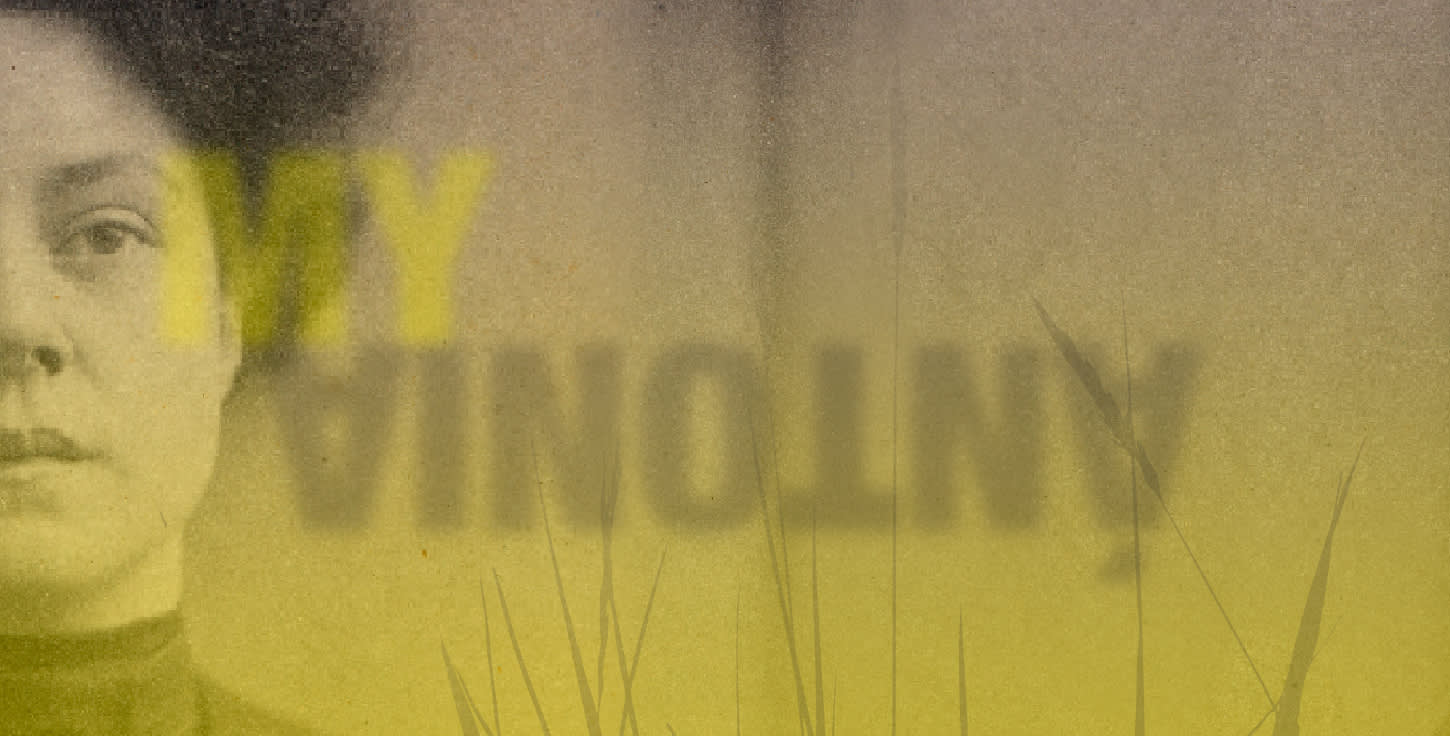Much of the criticism Willa Cather received during her lifetime was directed at her supposed schoolmarmishness and romanticism. Edmund Wilson compared her early, much-lauded novels to the output of the Ladies Home Journal, and Granville Hicks accused her of “a supine romanticism because of a refusal to examine life as it is.”
Some of this reputation still sticks. For many who haven’t read Cather, a title like O Pioneers! exudes an aura of exhausted American classicism. Stoic settlers and sweeping fields of grain are not very in right now, due in part to our changing views on Manifest Destiny. My Ántonia has the reputation, amongst people who read it in high school or not at all, as a slightly more adult Little House on the Prairie.
While any reader of My Ántonia can see very clearly for themself the romanticism in Cather’s evocation of farm life and the landscape of Nebraska, the novel contains an undercurrent of darkness, which would become a central theme of her later novels.
When Cather first hit success in her early forties with the so-called “pioneer trilogy” (O Pioneers!, The Song of the Lark, and My Ántonia), it was partially due to a new breed of critics’ reactions against what they deemed the “Henry Jamesification” of American fiction. (Ironically, Henry James had been, and remained, one of Cather’s prime influences, and her first, failed, novel had been almost a pastiche of his work.)
These literati were starved for stories outside of the marital trials of wealthy, urban socialites, and they found them in Cather’s works. H.L. Mencken wrote, rather glowingly, that Cather transmuted the tale of “poor peasants” into the “eternal tragedy of man”.
“The trouble with you, Jim, is that you’re romantic,” says Frances in My Ántonia.
Part of this appeal no doubt lay in Cather’s acknowledgement of the despairing side of frontier life. My Ántonia features a number of horrible, yet matter-of-fact vignettes, from the early, grisly suicide of Ántonia’s father to the dead dog Ántonia’s sons are mourning in the final pages, with the death of the tramp along the way. (“What would anybody want to kill themselves in summer for?”)
Nor does Cather neglect the details of the physical damage wrought upon human bodies by living close to the soil. Fieldworkers rub mutton tallow into their “cracked hands” for a little succor. Ántonia herself appears at the end, after decades of hard work (including child-bearing), with a worn body, including a distinct absence of teeth. Yet her lifelong friend Jim describes her as “battered but not diminished,” and Ántonia’s vital brood contrasts strong with Jim’s childless union.
How one reads this reunion, and what combination of irony, bitter sweetness, suppressed rage, or mawkishness one supposes on Cather’s part, determines how one reads My Ántonia. (It is much like Our Town, which, despite its reputation as sentimental small-town Americana pap, some consider composed with only the deepest sarcasm in mind.)

When Cather left the prairie behind in My Ántonia’simmediate successor, One of Ours, she fell out of favor with her former champions. As the twenties wore on, the emergence of the hyper-masculine Lost Generation made Cather look distinctly out of date. As Joan Acocella has observed, “the nobility of her characters, and the privacy she allows” them were very 19th century. Critics wanted stream-of-consciousness narration and barely veiled fucking, thank you very much.
The public didn’t particularly care. Cather’s novels continued to sell (she remained a market draw throughout her lifetime), though her classicism would morph into a kind of modernism, one featuring temporal gaps, shifting focal points, and much left unsaid. Simultaneously, as Doris Grumbach has noted, “most of her later fiction represents a systematic retreat into the past.” Death Comes for the Archbishop takes place in the 18th century, Shadows on the Rock in 17th century “Kebec,” and Sapphira and the Slave Girl is set in “antebellum Virginia”. Cather’s final attempt at a novel, Hard Punishments, of which only fragments exist, deals with two boys who have been tortured for complementary heresies during the reign of Antipope Benedict XIV.
However, Cather’s historical fictions, as much as they revel in reconstructing vanished ways of life, did not shy away from their periods’ privations and horrors. (Cather wrote admiringly of Flaubert’s tale “Hérodias” and novel Salammbôas “great reconstructions of the remote and cruel past”.) Death Comes for the Archbishop opens with Bishop Latour nearly dying of thirst and exposure, and travelers in Shadows on the Rock subsist for vast periods of time on cold lard and smoked eel. The supposed opening of Hard Punishments involves a blind priest visiting the boy Andre, who has just had his tongue torn out for swearing on the Virgin’s womb, and comforting him that he is not forevermore damned (having one’s tongue removed would make achieving the sinless state which comes after the sacrament of Confession impossible).
Cather’s historical fictions … did not shy away from their periods’ privations and horrors.
The slow, laconic tales Cather’s characters tell often approach the insular spiritual parable, and surpass My Ántonia’s story of Cutter’s murder-suicide. One of Bishop Latour’s predecessors quietly exploits his charges until they are driven to violence. In Shadows on the Rock, the apothecary Auclaire recounts how in France an old man was tortured to death for a minor theft.
Perhaps more prominently, Cather’s later novels became more attuned to the slow tragedy of time’s trawl. As the scholar Donald Sutherland put it, the characters of Cather’s novels appear as “people who come to us and leave us in life, moving in something experientially more terrible than almost any action, the passage of time and the dissolution of things in it.”
Heightening this impact is Cather’s presentation of friendship as a sacred bond. Death Comes for the Archbishopis just as centered around a life-long friendship as My Ántonia, only as a minor chord all the more vital for how little it is struck. The symbiotic relationship of respect and admiration between Auclaire and his patron Count Frontenac is even more formal, and even more buried in the text.
The Professor’s House, a mid-career masterpiece which Cather composed directly prior to Death Comes for the Archbishop, features an extended section where Tom Outland, beloved and lost by the titular professor, speaks from the past of his deep and mangled friendship with Roddy Blake. These friendships animate the quick of Cather’s characters, whereas their marriages seem unimportant, foolish, or doomed. (As Acocella observes, The Song of the Lark contains “probably the most unsentimental betrothal scene in all of Western Fiction”.) As Father Hector declares in Shadows on the Rock, “Only solitary men know the full joys of friendship.”
“There seems to be no future at all for people of my generation.”
Biographers, scholars, and critics have tried to generate perspective for this theme by reading into Cather’s close relationships with women. Cather’s mainly successful attempts to destroy, or veil through copyright, her personal correspondence (still a possibility in the age of paper) have made absolute certainty impossible, but it seems more or less obvious that she was a lesbian. Whether the close friendships of her novels should be read as closeted love affairs, or whether Cather merely elevated Platonic love to the highest plane as a complex reaction to the constraints of her life and time is unknown.
The mournfulness of late Cather might also be related to the marriage of her long-term companion and probable lover, Isabelle McClung; the death of her brother Roscoe; and health troubles, including an appendectomy and a damaged right hand (according to one of her biographers, Janis P. Stout, Cather could “scarcely sign her name” by the end of her life)

As American as Cather’s novels always were, they thrive on a vital interplay with the Old World, and Cather’s love of the opera signals her immersion in European culture. She seemed to take the destruction of WWII almost personally, writing to one friend, “Why should the beautiful cities that were a thousand years a-making tumble down on our heads now, in our short lifetime?” After the fall of France, Cather wrote in her notebook, “There seems to be no future at all for people of my generation.”
The transformation of the American countryside, and the constraints of the city, also wore on her. Cather, like Jim, ended up in New York City, but was never truly at ease there. Jim, upon moving into Black Hawk, observes, “People’s speech, their voices, their very glances, became furtive and repressed. Every individual taste, every natural appetite, was bridled by caution.” Cather often fled to rural redoubts in New Hampshire and Maine, seeking seclusion and, as she grew older, isolation.
As Acocella notes, Cather was a fantastically successful person, having achieved what she set out to do at a fairly young age, after long periods of seemingly fruitless struggle. So often do her late protagonists appear similar to their creator. Shadows on the Rock sees Auclaire eulogize his patron thusly: “He belonged to the old order; he cherished those beneath him and rendered his duty to those above him, but flattered nobody, not the King himself. That time has gone by. I do not wish to outlive my time.”
These protagonists often end unmoored from time, wishing to recreate the days of their turbulent youths. Professor St. Peter of The Professor’s House attempts to stop all change by continuing to lease his old house and writing in the same carbon monoxide-poisoned closet he composed his masterwork in. The act of dying strips all of Bishop Latour’s worldly accomplishments from him, and his last moments are consumed with reenacting the youthful scene wherein he convinced his dearest friend to travel to the New World with him. This hints at why Death Comes for the Archbishopis most beloved of Cather’s late work: death is not a spectre, but a gentle reminder of one’s humanity and place in history. Its rocky, repetitious narrative hides a serenity and sureness of purpose.
“The trouble with you, Jim, is that you’re romantic,” says Frances in My Ántonia. If that was Cather’s trouble in her youth, then as she aged, that romanticism could no longer conceal a deep pessimism toward the present. It’s not an accident that the final three words of My Ántonia are “the incommunicable past.”
Many thanks to Ashley Olson and Andre Jewell of the Willa Cather Foundation for providing the existing fragments ofHard Punishments.
My Ántonia is the current Slate Academy’s Year of Great Books selection. Check out their book club and discussions (a subscription to Slate Plus is required).







